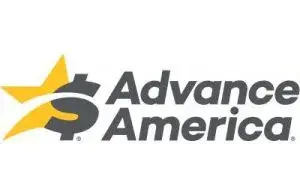OneMain Financial offers customized personal and auto loans with quick approval and funding.
Whether you’re consolidating debt, covering emergencies, or financing a vehicle, OneMain provides flexible solutions tailored to your situation.
✔ Same-day funding – Get money as fast as within an hour (via debit card).
✔ Flexible loan amounts – Borrow from $1,500 to $20,000
✔ No prepayment penalties – Pay off your loan early and save on interest.
Disclaimer: You will be redirected
How OneMain Financial Can Help You
Whether you need to consolidate debt, cover unexpected bills, or finance a car repair, OneMain Financial provides fixed-rate loans with predictable monthly payments. Their simple application process and quick approvals make them a top choice for borrowers who need fast access to cash.
What do I need to apply for a loan?
You’ll need a valid ID, proof of income, and proof of residence. OneMain reviews your credit and financial situation for approval.
How fast can I get my money?
If approved early in the day, you could receive funds within an hour via a bank-issued debit card.
Can I use a OneMain loan for debt consolidation?
Yes! Many customers use these loans to combine debts into one manageable payment, potentially lowering interest rates.
Are fees clearly explained?
Absolutely—OneMain provides full transparency on all fees before you sign your loan agreement.
What payment options are available?
You can pay online, via bank transfer, or in person at any OneMain branch.
How to Apply in 4 Easy Steps
- Fill out the application (online or at a local branch).
- Speak with a loan specialist to review your options.
- Submit required documents (ID, income proof, residency).
- Get funded fast—sometimes the same day!
Why Choose OneMain Financial?
- In-person service: Over 1,400 branches nationwide.
- Credit-building: On-time payments reported to major credit bureaus.
- No surprises: Fixed rates and clear terms.
Note: Loan terms and availability vary by state. Not all applicants will qualify for the maximum loan amount.
Disclaimer: You will be redirected
Credit Cards in the US: How to Choose, Improve Your Score and Use Them Wisely
Credit cards are a fundamental tool in the financial system in the United States, offering convenience, security and the opportunity to build (or recover) a good credit history. However, to make the most of them, it is essential to understand how they work, how they affect your credit score and how to choose the ideal card for your profile.
The Importance of Credit Score
In the US, a credit score is a number that reflects your financial reputation, generally ranging from 300 to 850. The higher, the better—and this influences everything from loan approval to the interest rates you pay.
Major credit bureaus, such as Experian, Equifax, and TransUnion, calculate this score based on:
Payment history (35%)
Credit utilization (30%)
Length of credit history (15%)
New accounts and inquiries (10%)
Credit mix (10%)
Experts like John Ulzheimer, formerly of FICO, and sites like NerdWallet and Credit Karma, point out that paying bills on time and keeping credit utilization below 30% are the best practices for improving your score.
Choosing the Right Card for Your Profile
Not all cards are created equal, and the best option depends on your financial profile:
Beginners/Those building credit: Secured cards (like Discover it® Secured) or store cards help build credit history.
Those with good credit: Rewards cards, like Chase Sapphire Preferred® or American Express Gold, offer cash back, miles, and benefits.
Those looking to rebuild credit: Options like the Capital One Platinum can help, as long as they’re used with discipline.
When is the Best Time to Get a Card?
There’s no one-size-fits-all answer, but some ideal scenarios include:
When you have a steady income and can pay your balance in full each month.
When you need to improve or establish a credit history (e.g., young adults or immigrants).
When you want to take advantage of sign-up bonuses (like the 60,000 points on the Chase Sapphire Preferred®, which are worth $750 toward travel).
Other Important Considerations
Interest Rate (APR): Avoid paying high interest—if possible, pay your balance in full.
Annual Fee: Some cards are worth it (like the Amex Platinum, with premium benefits), but consider whether it’s worth it for you.
Fraud Protection: Cards like those from Citi and Capital One have great security systems.
References and Trusted Sources
To compare cards, see:
NerdWallet
The Points Guy (specializes in miles and rewards)
Bankrate (for analysis of rates and benefits)
In short, a credit card in the US can be a powerful ally if used responsibly. Choose the best one for your needs, maintain a healthy score and enjoy the benefits without falling into debt!



